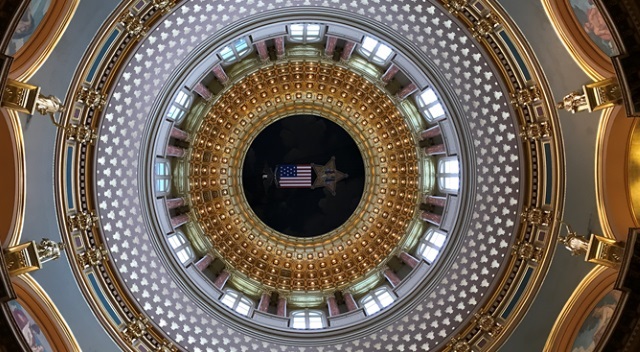
2019 Research in the Capitol
Presentation Type
Open Access Poster Presentation
Keywords
Voting research--Iowa; Voter turnout--Iowa; Young adults--Political activity--Iowa;
Abstract
Youth voter turnout in Iowa spiked in the 2018 midterm election. This paper attempts to figure out why. By replicating a 2004 study examining the voting behavior of young Iowans during the 2002 midterms, my study identified significant shifts in how young voters think and communicate about voting. After conducting 37 open-ended interviews with 18-24-year-olds, I found that although young people identified many of the same concerns in 2018 as they had in 2002, they were far more likely to vote. Respondents were more likely to identify the consummatory effects of voting, which in turn led to an increase in the identification of the instrumental effects of voting. I argue that their belief in the efficacy of their vote contributes to their more optimistic outlook on politics.
Start Date
1-4-2019 11:00 AM
End Date
1-4-2019 2:30 PM
Event Host
University Honors Programs, Iowa Regent Universities
Faculty Advisor
Ryan McGeough
Department
Department of Communication Studies
Copyright
©2019 Christopher Merck
File Format
application/pdf
Recommended Citation
Merck, Christopher Matthew, ""It's Important to Just Have Your Voice Heard": Young Voters Changing Perceptions of Political Efficacy [Poster]" (2019). Research in the Capitol. 1.
https://scholarworks.uni.edu/rcapitol/2019/all/1
"It's Important to Just Have Your Voice Heard": Young Voters Changing Perceptions of Political Efficacy [Poster]
Youth voter turnout in Iowa spiked in the 2018 midterm election. This paper attempts to figure out why. By replicating a 2004 study examining the voting behavior of young Iowans during the 2002 midterms, my study identified significant shifts in how young voters think and communicate about voting. After conducting 37 open-ended interviews with 18-24-year-olds, I found that although young people identified many of the same concerns in 2018 as they had in 2002, they were far more likely to vote. Respondents were more likely to identify the consummatory effects of voting, which in turn led to an increase in the identification of the instrumental effects of voting. I argue that their belief in the efficacy of their vote contributes to their more optimistic outlook on politics.


